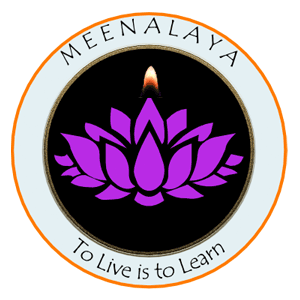Daily nectar of word meaning Day 05
நாள்தோறும் சொற்பொருள் அமிர்தம்
The most important instrument of knowledge is ‘shruti-pramāna’ without which we have no recourse for liberation! The word ‘shruti’ is that which is heard. The temptation is therefore to assume ‘shruti-pramāna’ to mean ‘sound’ as the instrument of knowledge. It is not so, because hearing all sorts of noises is already included under the ‘pratyaksha-pramāna’, through the organs of hearing. You might have heard about term ‘shabda-pramāna’ instead! Here shabda does not refer to noise but meaningful words. Making sense out of noises is under ‘pratyaksha-pramāna’. But making sense out of spoken words is different and not considered under pratyaksha-pramāna, but as a new means for knowledge. This is important to understand and we already employ this method in all walks of life. We take the words of scientists, for example, that water is made up of hydrogen and oxygen; we take it as a new knowledge without having any direct perception or inference. Yet we take their words as new knowledge as there seems to be useful application of that knowledge. Ofcourse, we will not heed to anyone’s words as ‘shabda-pramāna’, but only to those who are deemed qualified. A specialised term of ‘shabda-pramāna’ is ‘shruti-pramāna’, where the words of Veda are taken as the instrument of knowledge. Obviously, the term ‘shruti’ can be replaced by all synonyms of Veda. Do we really need to consider Veda as an instrument of knowledge? In these days of technology and progress, do we really need ‘shruti-pramāna’? What does it offer that we cannot get from other instruments of knowledge?
(to be continued – Mee. Rajagopalan – 14/05/2017) (தொடரும் – மீ. ராஜகோபாலன், 14/05/2017)

The point is to recognize the need for accepting knowledge from the words of those who know, especially where our sensory perceptions or inferences are not possible. 
[Sorry, this is to be loaded]
